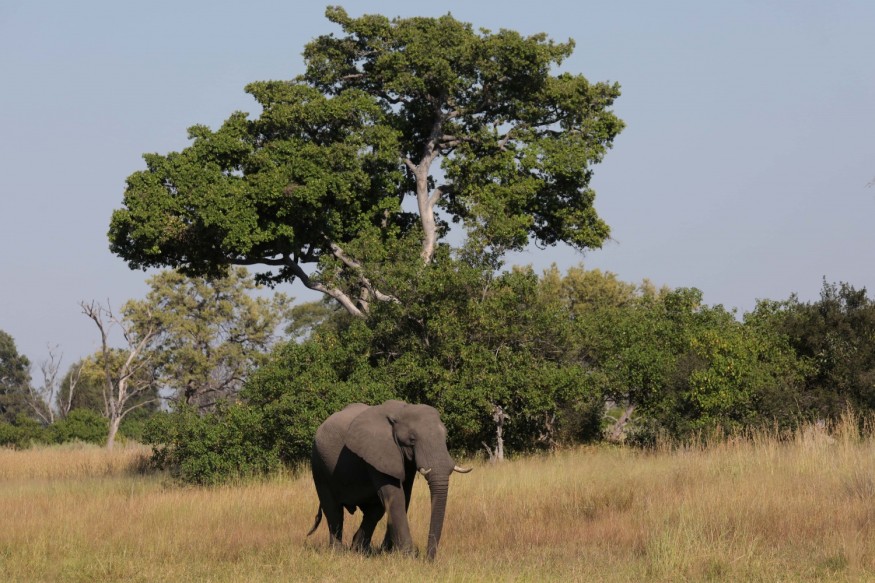
Regional Wildlife Authorities reported 154 elephant deaths since April in Okavango Delta in Botswana. The cause of death is still unknown as poaching and poisoning have been ruled out, leaving wildlife officials bewildered.
The carcasses were intact, suggesting that the elephants were not killed for tusks or meat. Authorities could also not find evidence of poisoning, which happens when there is human-animal conflict.
Earlier this month, Wildlife Officer Dikamatso Ntshebe in Gaborone reported of elephants dying in Okavango Panhandle. Some elephants are sick, and on the verge of dying, Ntshebe said.
The Elephant Husks have been removed from the carcasses to discourage ivory poachers from approaching the dead elephants. Locals have been advised not to consume meat from dead animals. Investigation on the deaths is still ongoing, and officials believe that there will be more deaths in the coming weeks.
Tissue and blood samples from the elephants have been sent to South Africa for further analyses. It may, however, take a while before the Wildlife Authorities receive the result due to the ongoing COVID-19 pandemic.
Last year, more than 100 elephants died, and the authorities pointed it to anthrax outbreak and drought. "Severe drought caused elephants to ingest soil while grazing and get exposed to the anthrax bacteria spore, "the Department of Wildlife and National Parks said.
The elephant population has been a decline in Africa, but elephants in Botswana increased tremendously since the 1990s. Botswana has more than 130,000 savanna elephants now, from 80,000 twenty years ago, the highest number of elephants in Africa. Elephants have become an important feature for tourism and pride in Botswana that it had been the source of livelihood for many. Despite this, there are growing numbers of resentment towards elephants.
A local farmer admitted that elephants had become a menace. He admits that farmers have a good harvest this year, but they are always faced with encroaching animals. But poisoning the elephants is a rare occurrence, and there may be some other factor.
According to Elephants Without Border, fresh elephant carcasses increased by 593 percent between 2014 to 2018. Poaching, illegal hunting, and drought are among the reasons for these massive deaths.
The growing number of elephants has caused increased contact with humans, which often destroys farmlands and even deaths. The increasing human-elephant conflict prompted Botswana to lift its ban on elephant hunting in May 2019. Sixty licenses were sold to hunt elephants, but the hunting season was postponed due to the lockdown to curb the recent pandemic.
According to Botswanan authorities, it is necessary to open hunting to ease wildlife, and human conflict as farmers have long complained that their crops and infrastructures have been destroyed by elephants venturing outside their foraging grounds.
Tiro Segosebe, a resident of Gaborone and whose village is most affected by the human and animal conflict thinks that the government is doing the right thing in reducing the number as elephants have killed a lot of people and destroyed several properties already.
Environmentalists are, however, divided on how to manage the conflict. While some fear that hunting may encourage more illegal poaching, others like Neil Fitt of Kalahari Conservation Club (KCC) say that it may not be the standard tool for conservation and conflict management, but may work if done correctly.
© 2025 NatureWorldNews.com All rights reserved. Do not reproduce without permission.





